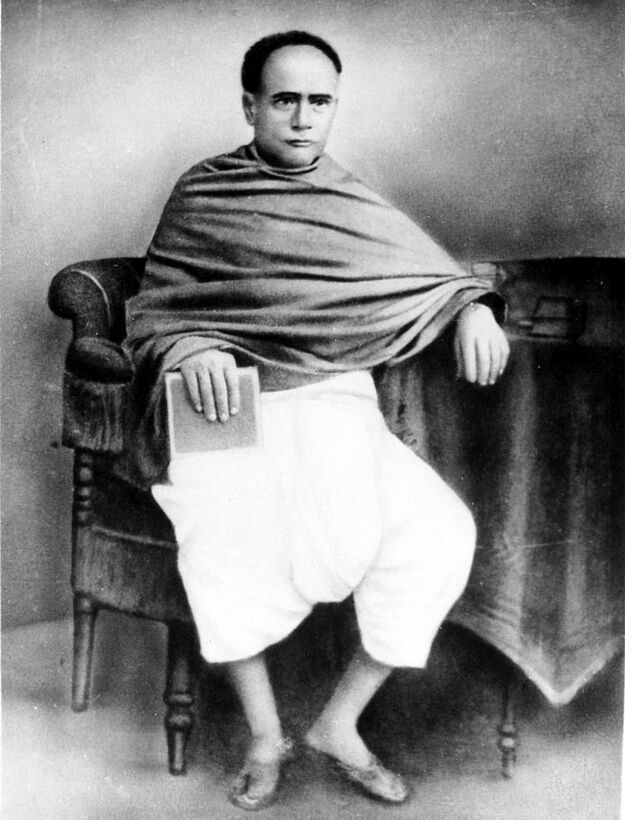A pragmatic reformist
As an able administrator and a social reformer, Ishwar Chandra Vidyasagar materialised his pluralistic ideas on the ground, which should inspire the present generation

"His foremost virtue was not his compassion, but his invincible manliness and imperishable humanity'', opined Rabindranath Tagore about Pandit Ishwar Chandra Vidyasagar. At the same time, noted historian Amalesh Tripathi called Vidyasagar a 'Traditional Moderniser', someone who has adhered to his philosophical legacy and yet never turned his face away from the contemporary demands for development. In the light of these two observations, we can say that Vidyasagar carried the message of Indian cultural heritage to combine it with the developments that eventually led to modernism. But more than that, he was one of the earliest to propound the notion of combining education with social order. His report regarding the reformation of the educational system of Sanskrit College is considered as the first Educational Plan by the Indians. Ishwar Chandra Vidyasagar was not just an idealist, he was a pragmatist. He was smart enough to realize that education was the panacea for all the social evils. While toiling hard to improve education, he challenged the existing conventions of his time. His social insight readily understood the factor of gender-bias. He endeavoured to minimise it. Hence, he longed for widow remarriage to get legal enactment. His life-long struggle had been to ensure education for women as he went on to open schools for girls on his own funding. His influence towered even on advocates of women education like John Bethune.
Ishwar Chandra Vidyasagar was a pragmatist to utilise his position in the domain of academic administration in British India. He had the opportunity to share his opinion with the policy-making ruling class, although it was not always a cake-walk for him. As an academician, he stood on his ground, strong. Vidyasagar wanted the expansion of western education. He, in his position and reach, also advocated for the introduction of English education in India. These attributes qualified him as an educationist, a reformist and an administrator who was reasonable enough to see the necessity of acquiring knowledge about the latest developments of science and material philosophy. His preference for moral education goes a long way to suggest about the impending danger he could foresee hanging on the ethics of our society. He was rightly convinced that no policy on educational development could vindicate the cause if the educated mind was morally degraded.
In the matter of coining innovative ideas, Vidyasagar was an icon. During his administrative regime as principal, he opened the gates of the Sanskrit College to all, irrespective of caste, creed or religion. He wanted educational institutions to be a melting pot of all cultures. Generations of academic administrators should be guided by this pluralistic attitude. Vidyasagar was against indoctrination and he preferred discussions and debates. His suggestions to the Woods Despatch in 1854 opened up serious debate between the orientalists and occidentalists. Vidyasagar accepted English as a medium of instruction in the system of Education but was also firm in convincing the committee that vernacular education cannot be ignored. Much because of his undaunted role, Woods Despatch recommended vernacular medium of instruction with a tri-language formula, to remain fully prevalent. It is also interesting to note that the major recommendations of this committee like training of teachers; female education; opening of universities; grant-in-aid system in supporting educational institutions were actually manifestations of Vidyasagar's mind.
Today, when we compare the present academic norms, we are bound to acknowledge our debt to Vidyasagar. It was he who encouraged the acceptance of admission fees and tuition fees at educational institutions. He was extremely keen on ensuring punctuality in attendance and maintaining discipline in classes. He also introduced the concept of summer holiday. As an academic administrator, he had the courage to tread on the path of propriety. He wanted to replace rote learning and suggested life-centric teaching. Modern education system dwells on lessons with practical demonstrations. Vidyasagar thought about it long back. As a member of the syllabus committee, he stressed on development of vernacular education and, in this context, his 'Bornoporichoy' played an effective role.
Sometime in 1847, the famous English poet Matthew Arnold had expressed his apprehension about the standard of primary education in England. Vidyasagar, in contemporary India, urged for development of primary education as a step towards mass education. In 1853, he wrote a letter to Fredrick Halliday, the Lieutenant Governor of Bengal, suggesting him about the improvement of 'Pathshalas'. Realising the importance of consistent evaluation as a means of enhancing the learning process, Vidyasagar introduced the system of monthly tests. Nowadays, government schemes like 'Kannyashree' or 'Beti Padhao, Beti Bachao' are introduced for financial help to the female students. In the capacity of an educator, Vidyasagar played a key role in the formation of 'Narishiksha Bhandar' to the same effect.
It is of utmost importance that a social reformer, coupled with the position of an academic administrator, should have an erect spine in the metaphorical sense. He needs to be compassionate, innovative and holistic in approach. Vidyasagar epitomised all of these with excellence and, above all, remained a great humanist. It is only our turn to imbibe the ideology he envisaged. Michael MS Dutt rightly said that Vidyasagar had the wisdom of an ancient Indian sage, the energy of an Englishman and the heart of a Bengali mother.
The writer is an educator from Kolkata. Views expressed are personal



